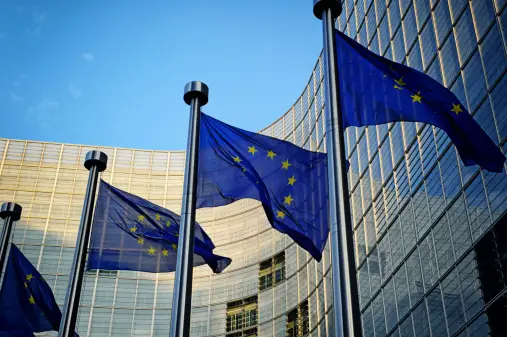European Legislators Enforce €1000 Cap for Unverified Users of Cryptocurrency

Although the European government hasn't determined their official stance on cryptocurrency regulation just yet, some individuals within the government (specifically lawmakers) recently created a new policy pertaining to users of cryptocurrency who have not completed the identity verification process.
The recently approved legislation wasn't only focused on cryptocurrencies but on preventing the concealment and movement of digital assets without identification. The official statement declared the implementation of "fresh European Union regulations against terrorism financing and laundering of funds."
Restrictions Placed on Unverified Cryptocurrency Users
According to an announcement, the European Parliament and other officials on the Economics and Civil Liberties committees held a vote on March 28 to establish new measures for preventing money laundering and terrorism financing. These measures include a restriction that cryptos users with unconfirmed identifications can only hold up to €1000.
According to the statement made by the press, it was mentioned:
Various organizations such as banks, wealth managers for crypto assets, real estate brokers for both physical and virtual property, and prominent football clubs will be obligated to confirm the identity of their customers, the assets they hold, and the individuals overseeing the company. Furthermore, they must create explicit assessments of the risks of terrorist financing and money laundering in their industry and provide this information to a centralized database.
Along with the $100 limit, the EU parliament decided to establish a €7000 boundary for payments made with cash by unverified crypto users in the same field. These limitations are a component of the EU's strategy to modernize its AML rules.
The boundaries are accompanied by rules that prevent companies from receiving sizable payments from unknown origins.
Damien Carême, a member of the French parliament who is leading discussions on updating anti-money laundering (AML) rules, has made it clear that the law does not intend to outlaw crypto payments. Rather, the focus is on preventing money laundering, with restrictions only applying to unregulated wallets and users who have not gone through the proper verification process. Carême emphasized that the goal is not to impede the use of digital currencies, but rather to ensure they are used in a safe and legal manner.
We're not blocking crypto transactions at all. Only when it's impossible to verify someone's identity.
"New Anti-Money Laundering Agency Launched by European Parliament"
The EU has established a fresh Anti-Money Laundering Agency (AMLA) for the European Union. The plan received a positive vote from 99 lawmakers, with six choosing not to cast their votes. The AMLA will have the authority to supervise and investigate for the purpose of ensuring adherence to AML/CFT regulations.
The AMLA is accountable for keeping an eye on possible dangers and menaces both inside and outside the European Union. Additionally, the organization will oversee certain credit and financial institutions directly and classify them based on their level of risk.
As per the report, the MEPs are aiming to give the AMLA the power to act as a mediator among financial supervisors from different countries and resolve conflicts. Additionally, the AMLA will be responsible for accepting reports from whistleblowers and conducting more rigorous supervision of non-financial sector supervisors.
Talking about money matters, the worldwide digital currency market has been able to remain stable, even though the United States finance industry has been going through a tough time in the last few weeks. In the last day, the planetary crypto market has gained 1.5%, and as I write this, it has reached $1.188 trillion.
The main picture in this blog post is from Unsplash, and the graph comes from TradingView.
Register for Our Newsletter!
To receive the latest news and unique deals, submit your email address.











































